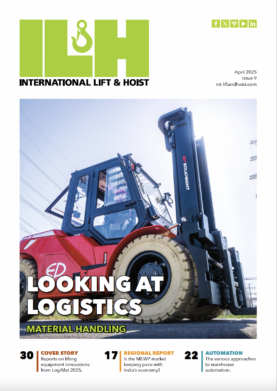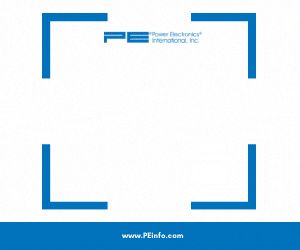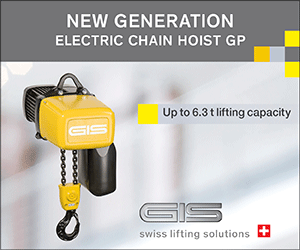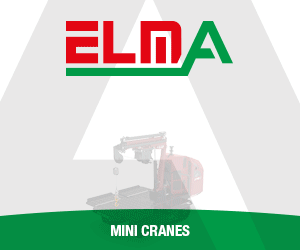NES Rentals CEO Joins IPAF Board Association calls for accident reporting at annual Summit
At IPAF’s Annual General Meeting, held March 29 in Rome, Italy, Andy Studdert, CEO of NES Rentals, joined as a director on the association’s board.
At the IPAF Summit following the general meeting, Studdert delivered the keynote address, calling on the aerial platform industry to adopt a more stringent safety culture similar to that of aviation. Drawing on his extensive experience in the airline sector, Studdert said that one of the critical lessons that the access industry could take from aviation is the reliance on standard, repeatable processes. In the airline industry, standard operating procedure is for the first officer to perform a walk-around inspection of a plane before each flight. An aerial work platform operator should adopt this repeatable process for pre-use inspections before using the equipment.
Another critical lesson is to have a culture of intervention, which means that any member of staff, from delivery driver to maintenance mechanic, is able to stop a machine being used if he or she identifies a safety concern. A final lesson is crisis preparation, with staff knowing exactly what to do in the event of an emergency.
Studdert recalled how he instigated these safety processes when he joined NES. Following an incident in 2004 when an aerial platform hit a bridge while being transported, he halted all operations for two days and called all staff to an emergency meeting. Studdert told his staff that he was “tired of being lucky.”
NES has since adopted a new safety culture that focuses on stringent equipment inspections and maintenance, and that is backed up by repeatable processes as documented in an environmental, health and safety audit checklist and a crisis communication plan. As result of this new safety mindset, Studdert said NES has not had a major incident in seven-and-a-half years, and the company’s insurance premiums were down by 75 percent.
Another call to action at the IPAF Summit included the recommendation that accident reporting should be mandatory for IPAF members. Peter Douglas, executive director of operations at Nationwide Platforms, made a case for accident reporting as a key initiative for IPAF, whose mission is to promote the safe and effective use of powered access worldwide.
“If IPAF was going to have an initiative, this is it,” he said. “In my view, accident reporting should be a mandatory condition of IPAF membership. Is your company responsible? Does your company want to make the industry safe? If yes, then get on the website and report accidents. If the answer is no, then my view is that you shouldn’t be an IPAF member.”
Mandatory reporting of accidents is not currently IPAF’s policy. The federation initiated its accident reporting database this year, with the aim of putting a figure on the total number of fatal accidents worldwide involving aerial work platforms, and using the findings to further inform its training and safety programs.
In his presentation, Peter Douglas also revealed accident statistics at Nationwide over the past three years. Delivery drivers were currently the biggest concern, he noted. In addition, near misses should be reported, not just serious accidents, because near misses indicate the most common risky behaviors. Reducing the number of near misses and minor accidents will gradually lead to reducing the number of more serious and fatal accidents, he said.
In line with the conference theme of analyzing and reducing accidents, IPAF technical officer Chris Wraith urged the industry to report accidents at www.ipaf.org/accident and help save lives. IPAF calls on all manufacturers, rental companies, contractors and users to report any known fatal and serious accidents involving AWPs worldwide and all known accidents involving AWPs in the UK. Information entered into the database is kept strictly confidential and will be used solely for the purposes of analysis and improving safety.
Around 35 companies have registered to use IPAF’s accident database, he said, although the numbers actually reporting accidents was still small. IPAF is currently aware of four fatalities worldwide involving platforms that have happened this year.
Chris Wraith said that understanding why accidents happen is key to changing risky behaviors in the field. “I used to bend the rules and ignore authority,” he said of his early operator experience as a lorry driver, before his management role in health and safety. In a closer analysis of a handful of recent accidents in the UK, he noted that time pressure was often the cause of the accidents. In each case, the operators were under time pressure to complete a job, leading them to take shortcuts that in the end proved fatal.
Ending his presentation with personal anecdotes, he said, “Every accident is one too many. It is time to cut through the myths and misunderstandings. Log on and start reporting accidents. We have a system here, but it needs your help to help us save lives.”
The next IPAF Summit will be held on March 26, 2013, in Miami, Fla.











